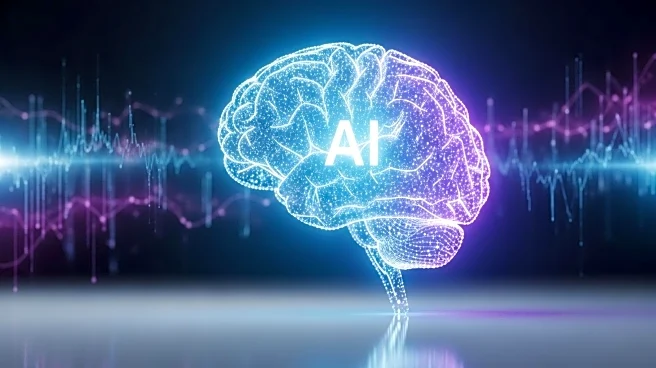What's Happening?
A recent study from Stanford University has revealed significant impacts of artificial intelligence (AI) on the job market, particularly affecting young people seeking employment. The study indicates that AI is not only replacing jobs but also making it more challenging for new entrants to find work, with traditional tech roles like software developers being most affected. Sinead Bovell, founder of the tech education company WAYE, discusses the misconceptions about AI's role in the workforce, noting that AI is now capable of handling tasks beyond routine and predictable workflows, including creative and complex tasks. This development raises questions about the necessity of hiring humans for roles that AI can perform at a comparable level.
Why It's Important?
The findings underscore the need for a shift in educational focus and workforce preparation. As AI continues to evolve, skills such as judgment, communication, deep thinking, and adaptability become crucial for individuals to remain competitive. The study suggests that the average shelf life of a skill is now approximately 2.5 years, emphasizing the importance of continuous learning and adaptability. Industries and educational institutions may need to reconsider their approaches to skill development, ensuring that future workers are equipped to navigate a rapidly changing job landscape. This shift could impact hiring practices, career planning, and educational curricula across the U.S.
What's Next?
As AI technology advances, companies and educational institutions are likely to reassess their strategies for workforce development. There may be increased emphasis on nurturing non-technical skills that AI cannot replicate, such as judgment and adaptability. Additionally, sectors like biology, space, and robotics are expected to see growth, offering new opportunities for job seekers. Stakeholders may need to focus on fostering a mindset of lifelong learning and adaptability to prepare for the evolving demands of the workforce.
Beyond the Headlines
The broader implications of AI's integration into the workforce include ethical considerations regarding job displacement and the role of AI in decision-making processes. As AI becomes a general-purpose technology, it will likely reshape societal structures and economic models, necessitating discussions on regulation and the balance between human and machine roles in various industries.









